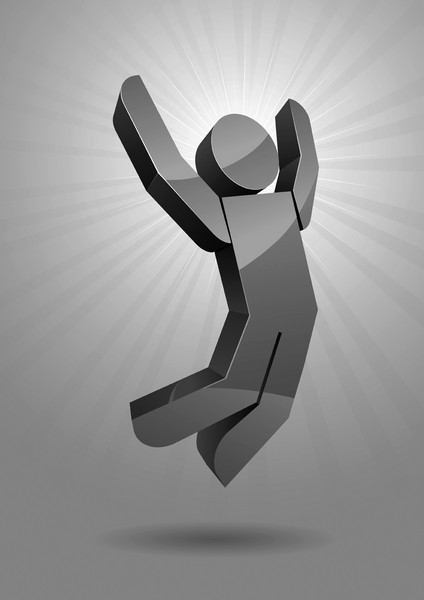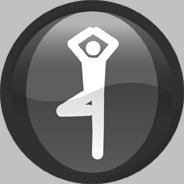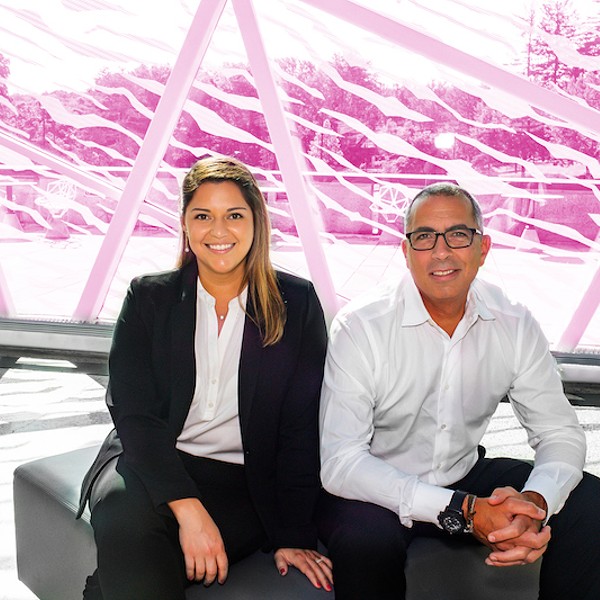In our increasingly pressured lives, people are craving more time and energy to get more things done, or even just to get through their daily routines. In fact, time and energy are now commodities. Buying “time share” holidays or trading options to achieve the most profitable outcome in buying or selling commodities is based on the concept of buying, negotiating, or extending time. But can we buy energy?
The answer is probably. Energy bars and meditation, yoga, or exercise can boost one’s energy. Yet this is clearly not sustaining enough, as most people still crave energy despite their hard-earned efforts at increasing it.
Why is this so? If we understand that time is outside of ourselves and energy is within us all, we begin to understand that energy is our own currency for living. Without energy, we can’t perform and do much in our life, even if we can buy time.
As philosophical as it may sound, this realization is very practical and has huge implications in the way we use and value our most vital resource—our energy.
The old paradigm for getting things done emphasized “time management”; now the human potential movement sweeping across the planet (so much so that it now underpins leadership training programs for Google staff) takes as its basic template for living your life, the need to balance your energy. So the new paradigm is all about energy and how we use it, and, most importantly, renew it.
But the “new paradigm” is not really new; its foundation lies in the wisdom of the ancient texts of Upanishads and the Vedas, and traditional Chinese medicine, a 5,000-year-old system for living in harmony. All of these bodies of ancient wisdom recognize that energy is the fundamental principle of life, and if it is not harnessed or renewed we face major struggles, symptoms, and imbalances.
It might sound a bit nebulous, yet energy transcends time, space, and dimension, as quantum physicists would attest. Simply put, when you manage energy, you are, in fact, managing time.
In the New York Times bestseller The Power of Full Engagement (2003, Free Press) co-authors Jim Loehr and Tony Schwartz (corporate coaches to top-ranked professional athletes and corporations) demonstrate how managing energy, not time, is the key to enduring high performance, as well as health, happiness, and life balance.
As the authors and management leaders summarize: “We live in digital time. Our pace is rushed, rapid-fire, and relentless. Facing crushing workloads, we try to cram as much as possible into every day. We’re wired up, but we’re melting down. Time management is no longer a viable solution.
“The number of hours in a day is fixed, but the quantity and quality of energy available to us is not. This fundamental insight has the power to revolutionize the way you live your life.”
The key to sustaining high performance in any area of life is to make the experience engaging and enjoyable, so it can be re-created again and again without burning us out. While our customary busyness may have the appeal of suggesting high productivity or being successful and in demand, it can also mean avoidance and energy drain. To renew our energy, we must find time for rest, relaxation, fun and play, emotional connectedness, mental relaxation, and spiritual realignment every day and in short bursts.
The Four Key Sources of Energy
Physical Energy
We can achieve this goal through:
* Quality and quantity of sleep
* Appropriate nutrition in order to have balanced blood sugar levels thought the day. It isn’t possible to be productive and perform well with low blood sugar. It is impossible to even think with very low blood sugar levels, as it literally leaves you feeling “brain dead.” Appropriate nutrition means managing your insulin spikes and choosing live, fresh, enzyme-rich foods for the best fuel for your physical body, your engine.
* The right exercise—and this does not mean excessive cardio. In fact, short, intense exercise is far more beneficial and doable.
* Short bursts of rest in between rushing around or performing endless tasks around the house or work are far more productive. Think of yourself as a “corporate athlete”—sprint and recover, instead of working all day long without regular rest and recovery. Little breaks can be anywhere from one to five minutes, as long as you totally disengage from your activity.
Emotional Energy: Creating Connection
In order to perform at our best, we need to access the positive and uplifting emotions associated with enjoyment, adventure, opportunity, challenge, and feeling inspired. Appreciating others and, in turn, feeling appreciated, is the key.
When we dwell on negative emotions such as hostility, resentment, and anxiety, the quality of our energy is hugely diminished. Over time, running on negative emotional energy at work or in any other area of life is a huge energy drain, which leads to chronic tiredness, perhaps even chronic fatigue syndrome.
This is because emotions that arise out of fear or deficit and threaten our survival in any way produce an extremely toxic effect by stimulating our adrenal glands to release cortisol, the stress hormone. In small amounts, cortisol is beneficial, but when it pumps into the bloodstream for too long, it leaves a trail of destruction and eats away muscle tissue.
Mental Energy: Sharpening Focus
Any way of quieting the mind and its constant chitchat, such as meditation or activities that focus on the breath like qi gong, allows us to renew our mental energy. This makes us far more intelligent and productive in the long run. To perform at our best, we need to sustain concentration and be flexible in our thinking, with appropriate focus and realistic optimism.
Regularly engaging in creative visualization enhances the mental flow of energy.
Mental capacity is derived from expending and renewing energy—in practical terms, if we spend too much time in overthinking, overanalyzing, and focusing heavily on practical outcomes, we are not allowing for creative possibilities and new ways of experiencing. If we adopt this approach habitually it can lead to boredom, a very destructive outcome.
Spiritual Energy: Finding Your Path
Knowing your soul or life purpose is not enough—taking little steps to actualize it and align your life with it is the key to maintaining overall balance. Why? It is not widely understood that while the most fundamental source of energy is physical, the most significant is spiritual.
If we are aligned with our spiritual energy, it directly flows and replenishes the other three interconnected sources of our energy bowl: the physical, the mental, and the emotional.
Spiritual energy aligns our actions, motivations, and ambitions, with the end result that we feel more alive, engaged, connected, and able to judge more clearly our next step. At this level, we are able to access and use our innate gifts and talents, so that we have a source of “energy on tap.”
Spiritual energy is the most powerful source of our motivation, perseverance, and direction; it makes sense to use it daily.
Fully Engaged
Life is not so much just about acquiring things and living from one experience to the next, but, rather, being fully engaged and enjoying what we are doing at any given time. And the key to being more engaged in all aspects of life is to balance our four key sources of energy—physical, emotional, mental, and spiritual—with intermittent energy renewal.
Just as nature has its own natural pulses and rhythms—the ebb and flow of tides, the lunar cycle, the seasons, the daily rising and setting of the sun—we also experience wavelike movements between activity and rest.
Our breathing, brain waves, body temperature, heart rate, hormonal levels, and blood pressure all have healthy and unhealthy rhythmic patterns. Daily rest and renewal is the key to balancing our four sources of energy. If we have more energy, we have the capacity to do more and enjoy life even more. If we can achieve a balance of being physically energized, emotionally connected, mentally focused, and spiritually aligned, we are well on the way to health and happiness.





















